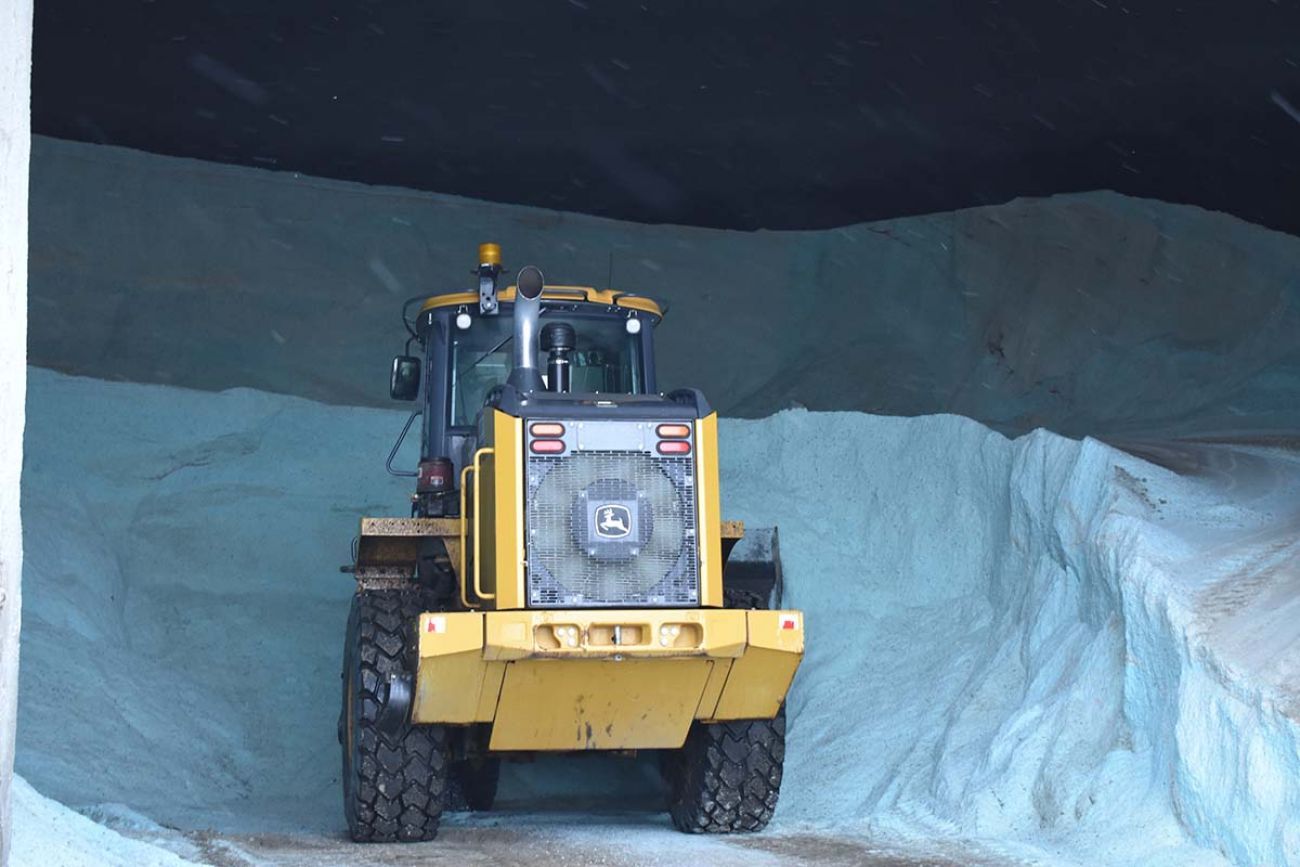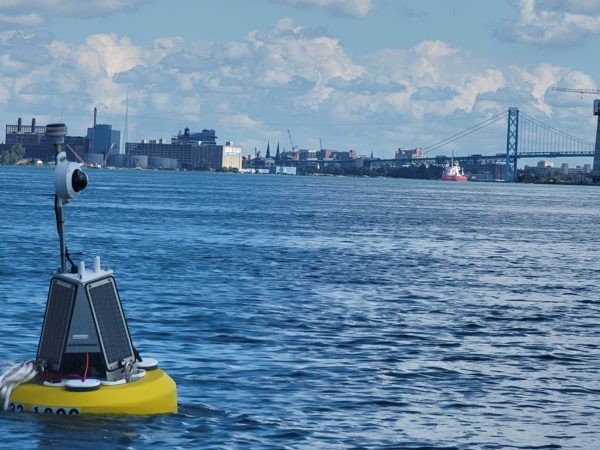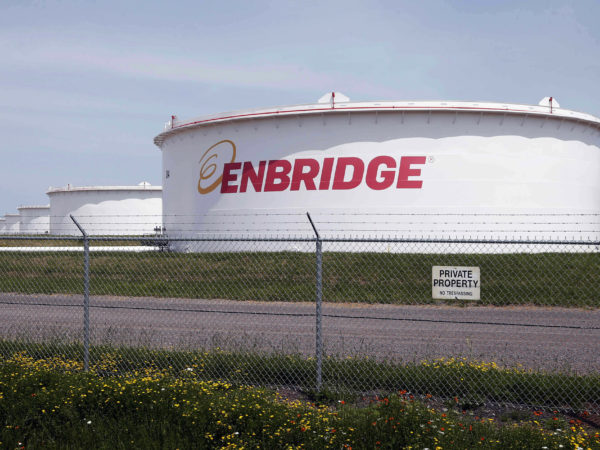
By Kelly House, Bridge Michigan
The Great Lakes News Collaborative includes Bridge Michigan; Circle of Blue; Great Lakes Now at Detroit Public Television; Michigan Public, Michigan’s NPR News Leader; and who work together to bring audiences news and information about the impact of climate change, pollution, and aging infrastructure on the Great Lakes and drinking water. This independent journalism is supported by the Charles Stewart Mott Foundation. Find all the work HERE.
- Michigan has the warmest winter on record, leading to plenty of problems
- One upside: road salt use is way down
- That saves taxpayers money and reduces pollution in lakes and rivers
Michigan’s lost winter has been measured in innumerable ways: Nationwide, it’s the hottest winter on record. The Great Lakes had historically low ice cover. Detroit had the second-least amount of snow in December, with 0.1 inch.
Now, there’s one more superlative: Road salt usage is down 37% this winter among Michigan’s 9,700 miles of trunkline highways. Barring a late season snowstorm, the state expects to use 175,000 tons less salt than usual (heavier than 1,200 good-sized blue whales), which would save the state about $10 million.
“Purchasing salt is probably our most expensive single-item purchase,” said Tim Croze, MDOT’s statewide maintenance and operations manager.
County road agencies, responsible for 90,500 miles of roads throughout the state, report similar declines.
In Marquette County, salt use is down about 25%, said Ross Olsen, operations director for the local road commission. Usage is 66% of normal in Oakland County, which maintains Michigan’s largest county road system.
“We’re not counting our chickens just yet,” said Craig Bryson, spokesperson for the Road Commission for Oakland County, but the near-term forecast doesn’t look snowy.
The decline bucks long-term trends: U.S. road salt usage has tripled since the 1970s.
Applying salt dramatically reduces the risk of winter collisions, but safety comes at a cost.
The briny runoff seeps into the soil and harms plants, or trickles into underground aquifers, rivers and lakes, polluting the water.
Lake Michigan’s chloride concentrations have increased dramatically since the 1800s, and continue to rise by a milligram every couple of years. Some rivers absorb so much salt during the spring melt, they briefly have the chemistry of ocean water. That harms fish and wildlife, and can free heavy metals from the riverbed.
Salt pollution has fundamentally altered some inland lakes, creating deepwater dead zones that are toxic to fish.
In recognition of those harms, “we’ve been trying to make a conscious effort to reduce our salt use,” said MDOT’s Croze.
Road officials said they don’t anticipate making any big changes to next year’s salt budget as a result of this year. Salt purchases are based on five-year averages, and Michigan’s recent history has included some high-salt years.
But long-term, climate experts say, the average winter will become too warm to warrant much salt spreading in many parts of the state.
“Winter is becoming compressed into a few weeks in January,” said Richard Rood, a professor emeritus of climate and space sciences and engineering at the University of Michigan.
His message to city planners: Don’t eliminate salting and plowing from the budget just yet, but “it’s reasonable to start planning for winters with less.”
In addition to reducing pollution, that would save taxpayers money.
This year, Bryson said, Oakland County will save more than a million dollars on salt, plus additional savings from reduced overtime costs and wear-and-tear on vehicles.
Olsen, of Marquette County, said his agency so far saved $80,000 on fuel, because less snow has meant fewer trips for plow trucks.
“Twenty-six years I’ve been here, and I don’t remember a winter anything like this,” Olsen said.
Rood noted that any potential reduction in salt pollution will pale in comparison to the “huge changes” climate change will bring for Michigan’s environment and culture.
And even for road agencies, there are downsides to milder winters.
Rainfall on frozen ground increases flood risks, while shoreline erosion is worse when the Great Lakes fail to freeze over. Meanwhile, repeated midwinter thaws are hard on roads.
That means road crews may spend less time operating salt trucks and snow plows, but more time filling potholes and rebuilding roads washed out by storms.
Catch more news at Great Lakes Now:
As Michigan winters vanish, researchers study snow for clues about what’s next
Michigan’s lost winter cancels sturgeon season, ski, dog sled races
Featured image: The Road Commission of Oakland County uses tens of thousands of tons of road salt every winter, but salt use could be down as much as 34% this year. (Photo courtesy of Road Commission of Oakland County)




